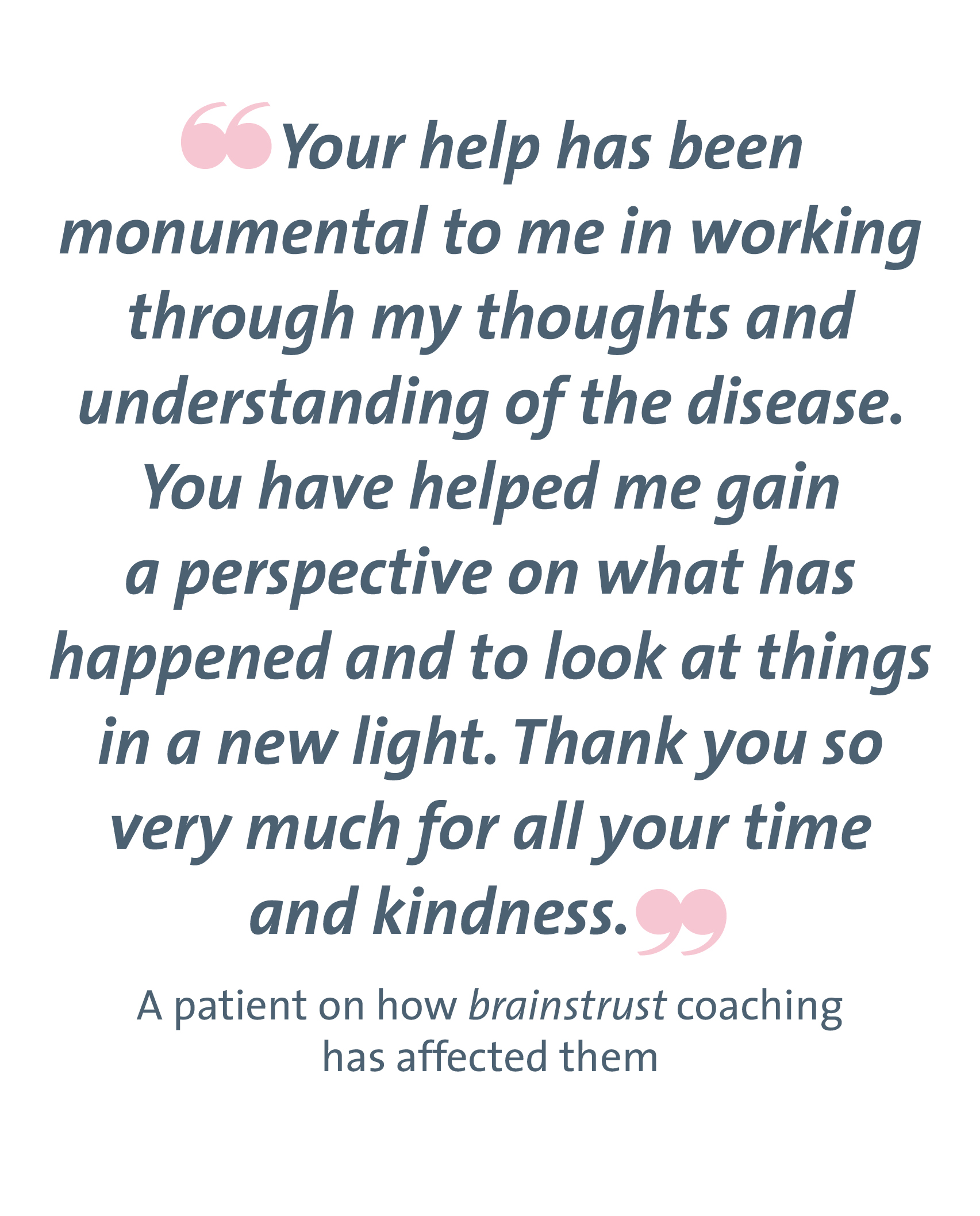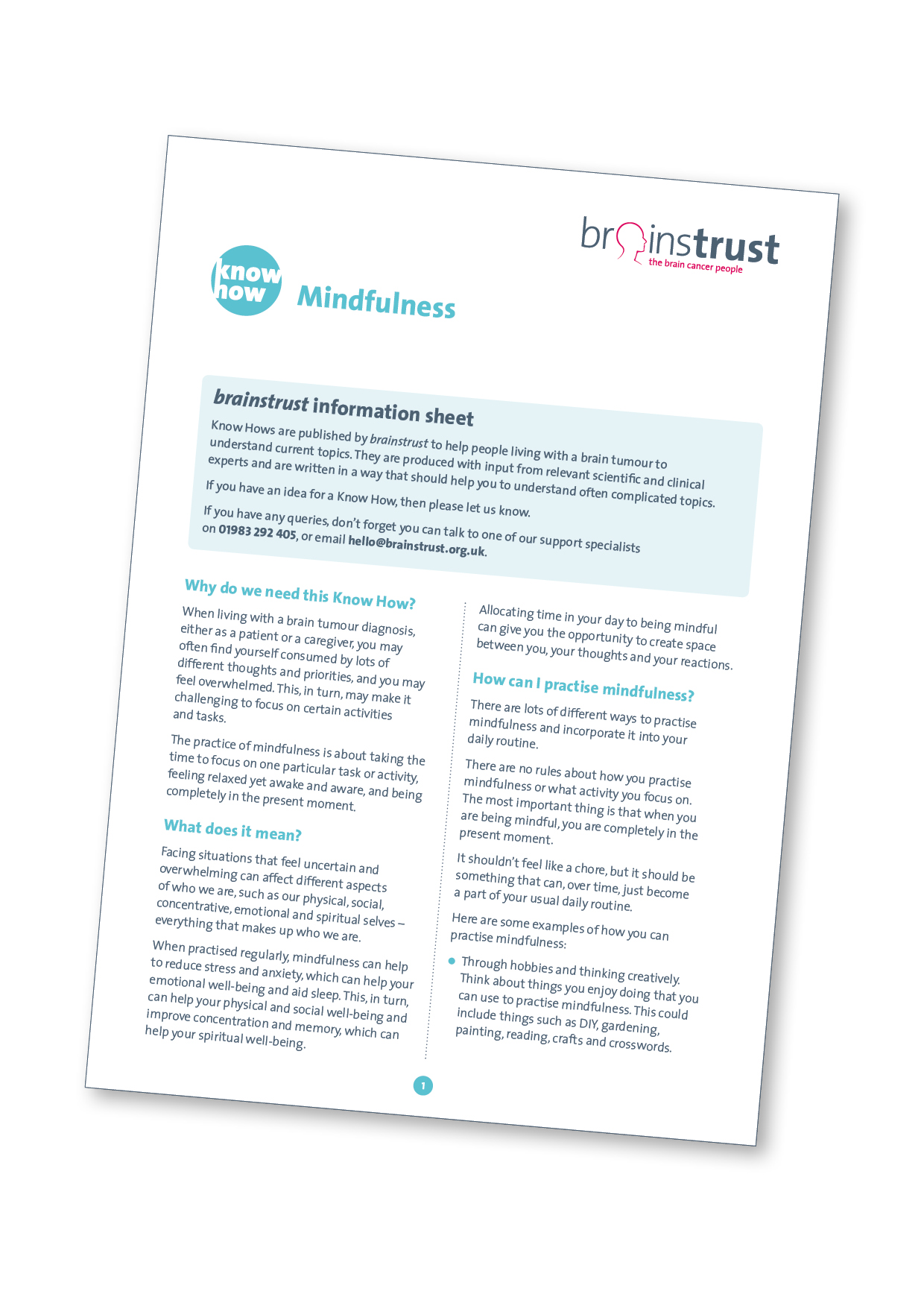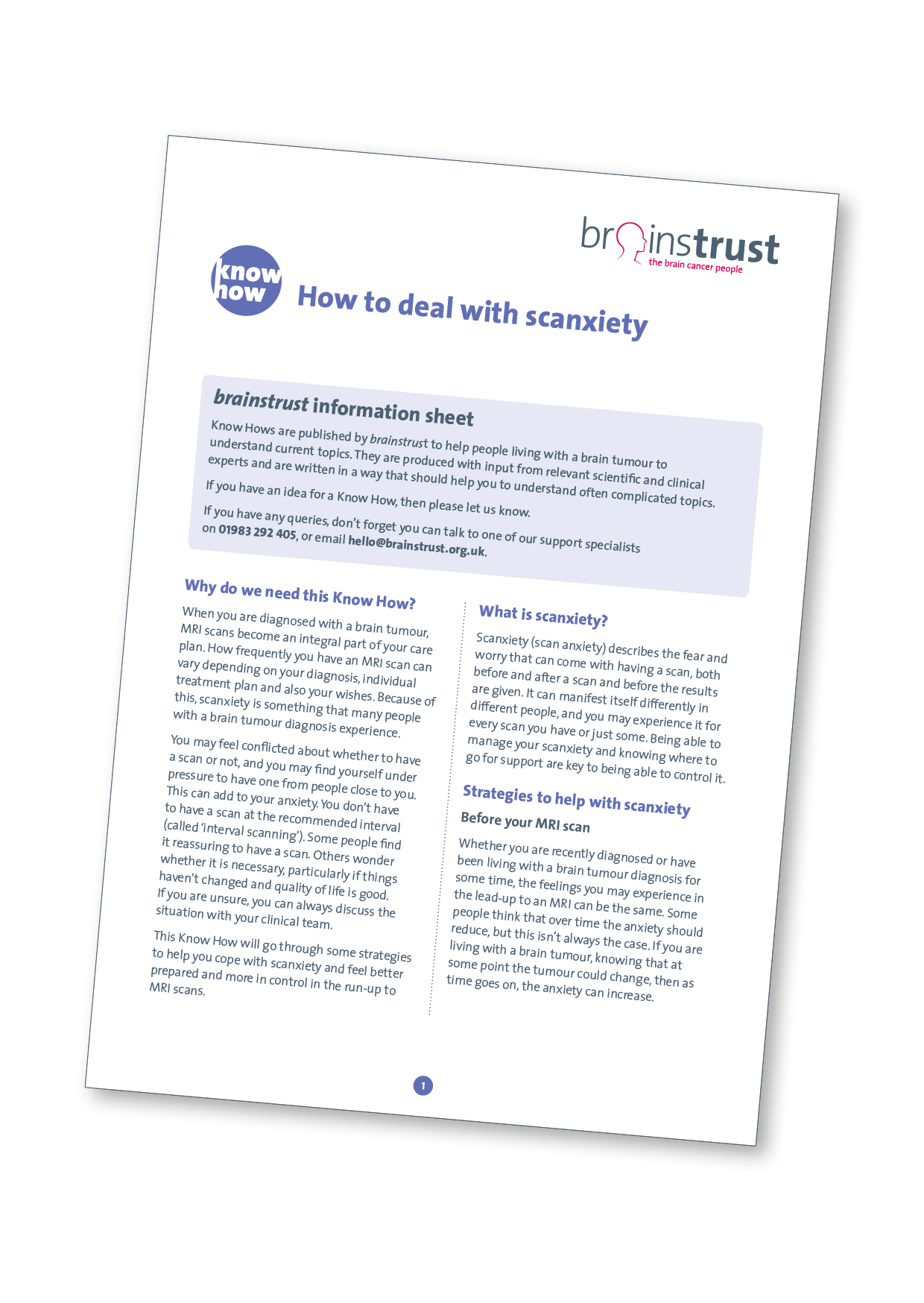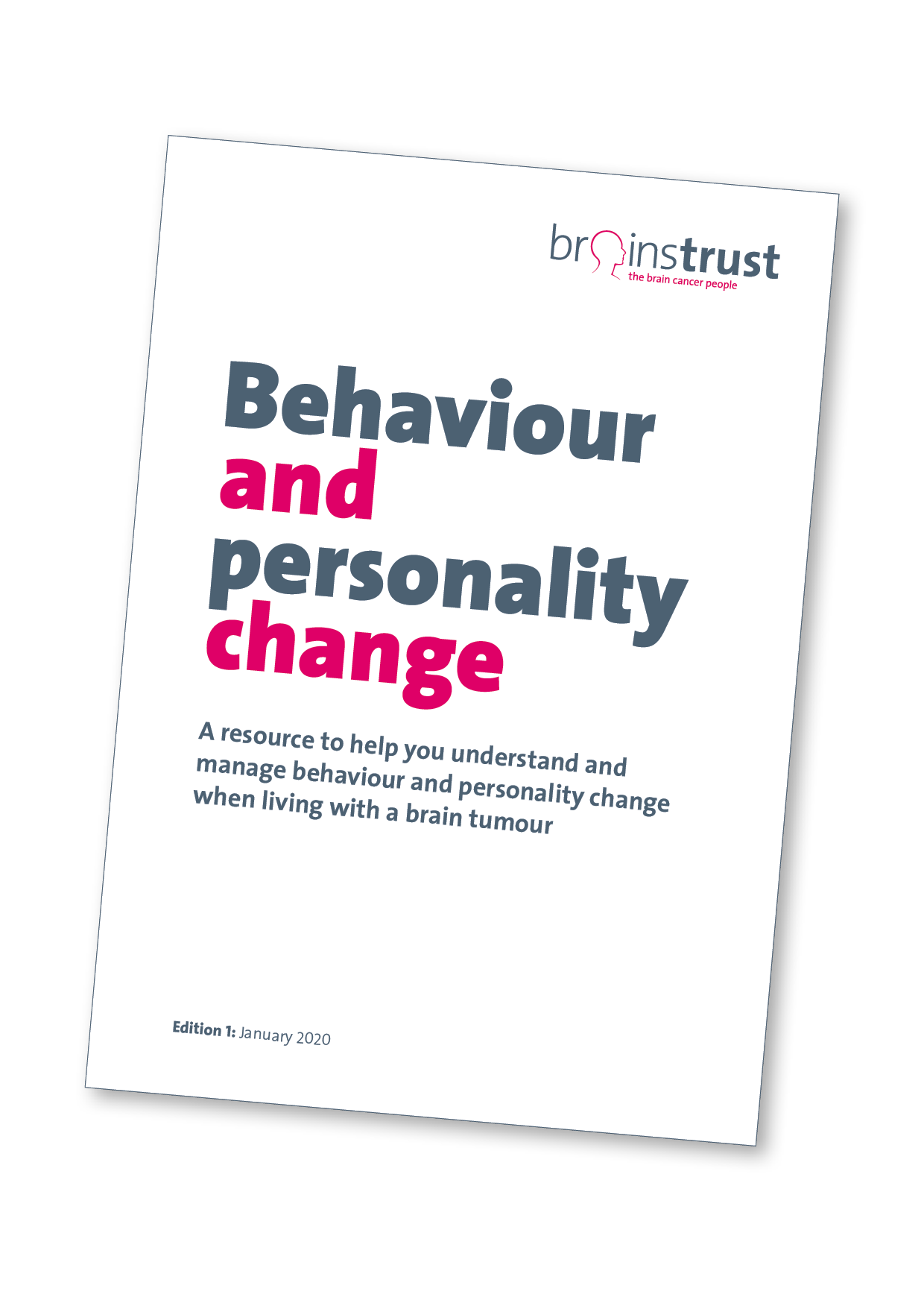For World Wellbeing Week 2023 we’re taking a closer look at a common, yet sometimes overlooked, aspect of dealing with a brain tumour diagnosis and its surrounding journey. That being, anxiety. In this article we explore why anxiety is prevalent in the brain tumour community and provide tips and resources for living better with anxiety.
According to The Mental Health Foundation, an average of 37.1% of women and 29.9% of men in the UK reported high levels of anxiety in 2022/2023. That is around 1 in 3 people and unfortunately, despite how much of a shared issue is for so many in our society, it can still feel incredibly daunting to talk about. This is made harder still when combined with the added challenges of a brain tumour diagnosis.
We want to acknowledge that anxiety is normal for those dealing with a brain tumour diagnosis, raise awareness of how and where it presents, and provide methods of coping where possible.
Anxiety in the brain tumour community
Experiencing anxiety at any stage following a brain tumour diagnosis, is normal and valid. However, there are certain challenges that come with a brain tumour diagnosis that can significantly contribute to feelings of anxiety.
Scanxiety
There are points of clinical significance that can trigger anxiety, especially around the process of scanning. Initial diagnosis, getting a new scan to check for progression, as well as the uncertainty of waiting for scans and results can all create feelings of powerlessness and anxiety. Our resource on dealing with ‘scanxiety’ can help you cope better with scanxiety.
Behaviour and personality changes
The ways in which a brain tumour and its symptoms can affect your sense of self can also be anxiety-inducing. Changes to behaviour, personality, ability and cognition can impact our mental
health and how confident we feel in ourselves. There are ways to alleviate this weight and feel supported and resourced throughout your journey. Visit our page on behaviour and personality change to find out more about our support.
Living better with anxiety – support and coping skills
Anxiety, like most mental or physical health conditions, isn’t something that can be remedied with a quick fix. It takes care, attentiveness, and self-compassion to ease.
Here are some ways to cope with anxiety:
Sharing your experience – having someone to confide in can provide connection, validation and an opportunity for us to share our worries. It’s normal to feel concerned about how this may impact your relationship with a loved one, but having an open dialogue about your needs and concerns can help to build a mutual feeling of support and trust.
Sharing your experiences with healthcare professionals, or doing coaching or counselling, can help you speak honestly about your experiences. These conversations allow you to gain professional support and guidance about how you can best move forward.
brainstrust offers a coaching service, matching you with a trained, region-based support specialists who will use coaching to help you to make courageous decisions about your life. Coaching conversations focus on clear goals that you can work towards to achieve a better quality of life. To learn more, click here. We also offer a peer support service, offering you a space to connect with someone who has been in your shoes. And you can attend meet-up groups and webinars where you can share with others having similar experiences.

Some other ways to manage anxiety include:
- practicing breathing exercises during stressful situations
- improving our physical health through diet, exercise and sleeping well
- practicing mindfulness exercises such as journaling. Find out more about how you can practice mindfulness, download our mindfulness know how here.
Get support today
Anxiety can be a very isolating experience, full of doubts, worries and fears. But we can counteract the intensity of it by having empathy for ourselves, and taking advantage the support available.
To talk to a brainstrust support specialist about how we can support you to manage anxiety relating to your brain tumour diagnosis, call 01983 292 405 or email hello@brainstrust.org.uk.
Additionally, you can contact the Samaritans by calling 116 123 or emailing jo@samaritans.org if you need someone to talk to.











